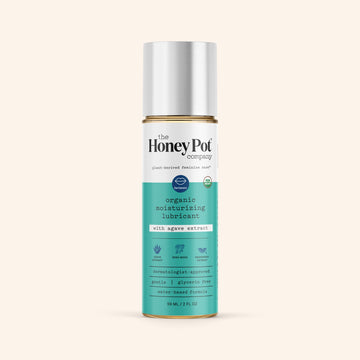The world is becoming more and more health conscious and baby, I am here for it! You can barely scroll through TikTok, Instagram, and Facebook without experiencing information overload when it comes to all things health and wellness. Some hot topics discussed are prebiotics, probiotics, and fairly recently, postbiotics – but what are they? Why are they important and how do they contribute to our health?
Prebiotics: Fueling the gut healthy bacteria
Prebiotics are a source of food for your gut’s healthy bacteria (the beneficial microorganisms in the intestines). They are carbohydrates that your body cannot digest. Because our bodies cannot digest them, they go to your lower digestive tract where they act as fuel that helps the healthy bacteria grow. Health benefits of prebiotics include; improving mineral absorption, modulating the immune system, modulating satiety (the ability to feel “full”), improving bowel habits, reducing occasional constipation and diarrhea, promoting metabolic health (insulin resistance and healthy blood lipid levels), helping with symptoms of irritable bowel syndrome, reducing the risk of developing allergies, and improving the health of the cells in the gut lining. They are naturally present in a wide range of foods including many fruits, vegetables, and whole grains such as; apples, berries, bananas, green vegetables, asparagus, artichokes, cocoa, dandelion greens, garlic, onions, tomatoes, soybeans, legumes (peas and beans), flaxseeds, oats, barley, and wheat.
Probiotics: Influencing the vaginal and vulval microbiome
Probiotics are live microorganisms that, when administered in adequate amounts, offer health benefits by supporting the good bacteria that live in your body. They typically benefit the bacteria that are impacted when taking antibiotics, having a poor diet, or traveling. Probiotics can help your immune system function properly, aid in digestion by breaking down some foods that we cannot digest, keep harmful microorganisms in check, produce vitamins, and aid in nutrient absorption. They may decrease the risk or duration of common infections in the respiratory tract, vaginal tract, and gut. Probiotics are present in yogurts, fermented foods, milk, and dietary supplements. In a previous post, “What is Vaginal Flora?, discusses the benefits probiotics have on the “vaginal flora” or “vaginal microbiome”. Probiotics have been clinically shown to support a healthy balance of good bacteria in the vagina. The vaginal microbiome is the ecosystem of the vagina, a collection of various microbes. The microbes are usually bacteria – the most common bacteria in the vagina is the Lactobacilli species, which accounts for at least 90-95% of the bacteria present. Lactobacillus has been identified as a “good bacteria' and probiotic.
The vulva consists of several bacteria including Lactobacillus, making the vulvar microbiome very similar to that of the vagina. However, the vulvar microbiome has a higher diversity because of its external location. The vulva is the first line of defense to protect the genital tract from infections and contaminants, which often collect in the vulvar folds. The vulva microbiome can be influenced by increased moisture and sweating, menses, and hormonal fluctuations. Proper cleansing of the vulva is extremely important to reduce the potential risk of odor and vulvovaginal infections. I encourage women to choose a carefully formulated and clinically tested external wash. In fact, The Honey Pot Co has launched a cleansing and refreshing Prebiotic Foaming Wash and Wipe that has been clinically shown to be gentle and non-irritating to the vulva.
Postbiotics:
The term “postbiotics'' refers to the waste, or end product, left behind after your body digests both prebiotics and probiotics. Once the body breaks down prebiotics and probiotics the remaining components are metabolites or bacterial components that become “postbiotics”. Healthy postbiotics are separated into several categories based on the metabolites or bacterial components: nutrients (vitamins B, vitamin K, amino acids, peptides), short-chain fatty acids (butyric acid), cell wall fragments, enzymes, exopolysaccharides, and lipopolysaccharides. These metabolites or bacterial components are the driving force behind the health benefits of probiotics.
Postbiotics have been shown to have bioactivities such as antimicrobial, antioxidant, anti-inflammatory, anti-proliferative, and immunomodulation. Postbiotics can help to slow down the growth of harmful bacteria or help healthy bacteria flourish. You can increase the amount of postbiotics in your gut by increasing your intake of fermented foods (kefir, tempeh, and kimchi), buttermilk, cottage cheese, high-fiber foods (oats, flaxseed, seaweed, and garlic), miso soup, sourdough bread, and yogurt.
Implementing probiotics, prebiotics, and postbiotics into your daily life are easy to positively influence your gut, vaginal, vulval, and general health! However, if you have any health issues, always talk to your doctor before you self-treat. A doctor’s evaluation is useful in ruling out more serious underlying conditions, and the treatments we offer are often safe and effective.






